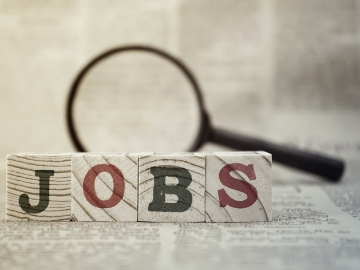What to Expect at a Job Interview and 5 Ways to Prepare

After your resume passes the standards of the recruiter, the interview is where you can make or break your chances of landing the job. Preparing for this is the key to success if you want a job offer. Before you talk to the interviewer, you must know what you're getting into. Here's a handy guide on what to expect in an interview and the ways to prepare.
What to Expect at a Job Interview: Before, During, After
One way to prepare is knowing what happens before, during, and after. If you know what to expect at a job interview, you'll know what to do for every step.
-
Before the interview
Before the interview, you should already be in contact with the recruiter. Depending on the job, they may ask for sample works or other documents. You may also have a preliminary interview over the phone before being invited to an office or online interview.
-
During the interview
If you have any gaps between jobs, the interviewer may ask about them. Try as much as possible to make it sound positive while being honest. Explain how you've used that time to learn a new skill or take a break to travel.
You should also expect a question about the salary, so have a range in mind. You can research salaries of similar jobs and mention what you found in the interview.
-
After the interview
If the interviewer gives an estimated time when they'll contact you again, wait until that period finishes. Then if you haven't heard back from them, reach out only once to the interviewer to follow up.
Depending on the company, the interviewer may call you back for more rounds of interviews. The steps to preparing for these are the same. If the interviewer gives an offer right after, thank the interviewer and say you need time to consider it. Then, ask how much time you have to accept.
5 Ways to Prepare for Your Job Interview
Showing up prepared for your interview will leave a good impression on the interviewer and increase your chances of getting the job. Here are some ways you can prepare:
-
Research the company
Check the company's website for its history, products, services, and activities. Then go through the job posting again to make sure you can answer how you're a good fit for them. Knowing about the company will show how interested you are in the job.
-
Expect at least 10 to 20 questions
The interview will have about 10 to 20 questions for roughly an hour. Prepare to have answers that are at least two to three minutes long. You can research the typical job interview questions to give you an idea of what answers you need to share.
-
Be prepared with your answers
Once you've researched the common questions, write your answers down and refine them. Then, have a friend or family member help you by putting you through a practice interview. By practicing, you'll build confidence and your speaking skills.
You can also try recording yourself through video to check your movements and how you answer.
-
Prepare your questions
Remember that during a job interview, you're also interviewing the company. Prepare your questions so you can decide if you can see yourself working with them. You can ask about a typical workday and how they measure your performance and career path.
-
Print copies of your resume
If you're going to an interview at an office, it's essential to have hard copies of your resume. Even if the recruiter already has a digital copy sent through email, they may not have it on hand during the interview. Having copies will let the interviewer see that you came prepared.
Keep Calm and Ace That Interview
An interview is the product of the time you spend job hunting, but it's only the beginning. It's important to walk in prepared, so research, review your answers, and practice speaking.
Once the interview begins, remember to breathe and keep calm. Being calm will give you a clearer mind to answer questions correctly.
Put these tips to the test by scheduling your next job interview at Career.com.



